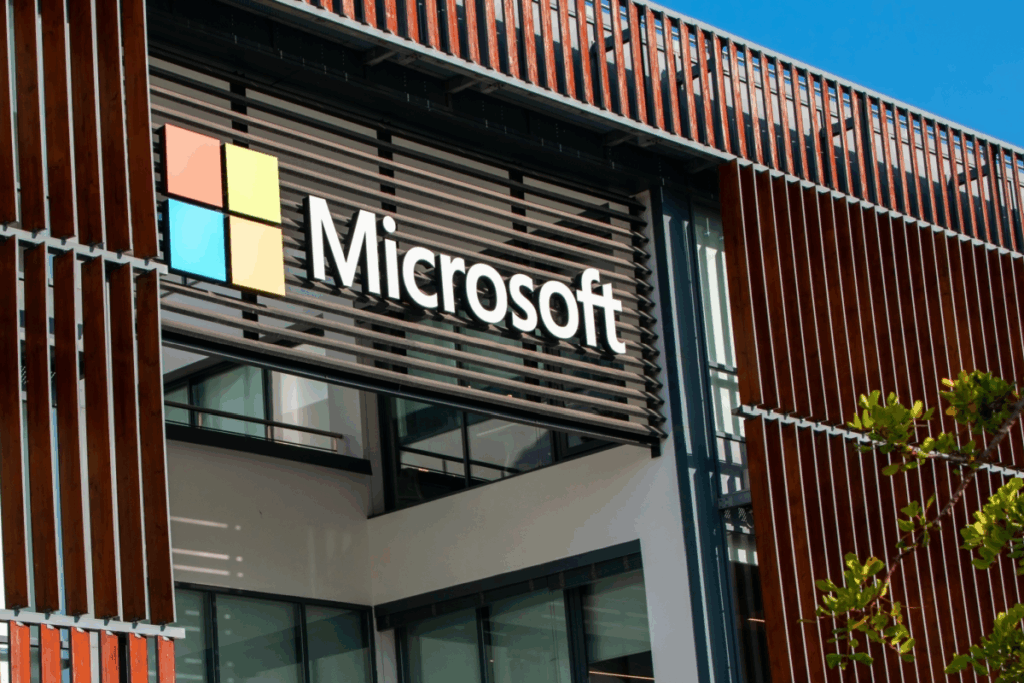Surging AI Momentum and Cloud Growth Drive Historic Milestone
Microsoft reached a historic $4 trillion market valuation on Thursday, becoming the second company ever to do so after a strong earnings report and renewed investor confidence in its AI and cloud businesses. Shares of the tech giant rose nearly 4.5% in early trading, pushing its intraday value to $4.01 trillion. The stock has gained approximately 28% since the beginning of the year.
The company’s rapid growth reflects a steady climb since it hit the $3 trillion mark in early 2023. It first reached a $1 trillion valuation in April 2019. Microsoft follows Nvidia, which became the first company to cross the $4 trillion threshold earlier this month. Apple, meanwhile, remains valued at around $3.12 trillion.
Microsoft reported record capital spending forecasts of $30 billion for its current fiscal quarter, with a significant portion allocated to artificial intelligence development. Strong performance in its Azure cloud computing unit and meaningful adoption of the Copilot AI assistant across its Microsoft 365 enterprise suite contributed to its latest stock rally.
AI Investment Reshapes Microsoft’s Business Model
Since partnering with OpenAI in a multibillion-dollar agreement, Microsoft has rapidly integrated generative AI into its core services. The exclusive access to OpenAI’s models has fueled innovation in products like Azure and Office Suite, helping the company outpace rivals in the AI race.
Azure has now become Microsoft’s top revenue driver, outperforming competing services from Google and Amazon. The success of generative AI tools, particularly ChatGPT, has doubled the company’s market value since late 2022, positioning Microsoft as the dominant force in the evolving AI landscape.
Wall Street analysts have praised Microsoft’s ability to translate AI advancements into real business growth. The company has achieved record revenues since September 2022 and managed to maintain strong performance even amid broader market concerns over global tariffs and economic uncertainty.
Resilience Amid Trade Tensions and Cost Restructuring
Microsoft’s rise comes despite ongoing trade tensions and aggressive tariff policies. The company’s stock has rebounded nearly 50% since hitting a low in April 2025, when markets were shaken by President Donald Trump’s escalating trade measures. Recent progress in trade talks has helped lift broader markets, with the S&P 500 and Nasdaq reaching new highs.
At the same time, Microsoft has initiated significant workforce reductions. In July, it announced the layoff of around 9,000 employees — nearly 4% of its workforce — marking the largest staff cut since 2023. That move followed 6,000 layoffs in May. According to the company, the job reductions reflect shifting operational needs and increased efficiency from technological advancements.
While AI was not explicitly mentioned in relation to the layoffs, CEO Satya Nadella previously stated that 20% to 30% of Microsoft’s code is now generated by AI. The implication is clear: automation is reshaping the structure and scale of the company’s operations.
Poised for Continued Dominance in Tech and AI
With investor confidence surging and its AI capabilities expanding, Microsoft is now firmly positioned among the world’s most valuable companies. Its disciplined spending, AI-driven product growth, and aggressive pursuit of innovation continue to set it apart in a competitive technology sector.
Despite economic headwinds and restructuring challenges, Microsoft’s performance underscores the growing role of artificial intelligence as a core driver of business value. As other tech giants race to catch up, Microsoft’s early bets on AI infrastructure and its integration into enterprise tools appear to be paying off — propelling it into a new era of technological leadership.


